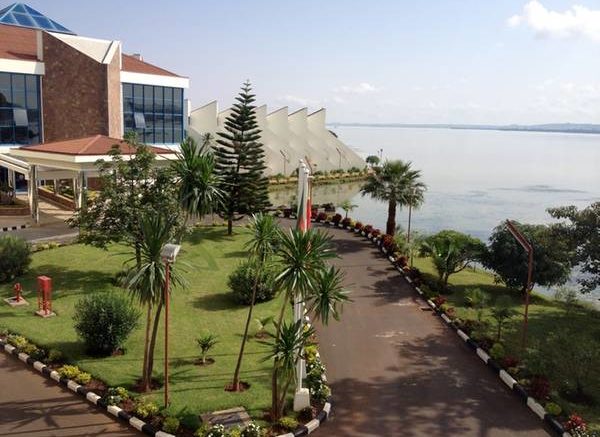Betty Asres is a typical senior at T.C.; she is busy with college applications and Advanced Placement courses, applying for jobs, and participating in extracurricular activities. But Betty, unlike the majority of T.C. students, has lived in the United States for just over a year. She is a part of the International Academy (IA), which serves students who have recently moved to the United States from over forty nations around the world, including El Salvador, Guatemala, Afghanistan, and Betty’s native country of Ethiopia. The IA aims to aid these students in adjusting to life in America by helping them learn English, achieve postsecondary education, and perform well in courses that challenge them.
Asres came to Alexandria from Bahir Dar, a city in Northwestern Ethiopia, with only her twin brother, in June of 2016. She enjoyed her classes during junior year, although she struggled with learning English and balancing her school and home life. “It was really hard for me to work at home [at first]. It was my first time living without my family. I was learning [in school] at the same time as having to be a mother at home” she said.
This year, Asres has begun the process of applying to college. Her list of schools, twenty, to be exact, include well-respected institutions such Bard College and Columbia University in New York. “My dream school is Yale,” she said, “I just applied there and I really hope I get in”. Asres aspires to major in cybersecurity, computer sciences, or business.
The IA counselors and teachers, said Asres, are incredibly helpful in supporting students with their applications for both colleges and jobs. The counselors help students write essays, learn what schools they would like to apply to, find volunteering opportunities, and understand the requirements involved in the application process. “If I don’t understand how to do something, and I didn’t know how to search for colleges, my counselor will search it for me and tell me what I need to do” she said. The support encourages all IA students to apply for college, and helps them succeed both during and after high school.
Asres is also a part of T.C.’s Ethiopian-Eritrean Club. She has been helping to plan the school’s annual International Bazaar, a celebration of the diverse student body in which students share their cultural customs, food, clothing, and dances with each other. Many IA students participate in coordinating this event, all of whom participate in different cultural organizations at T.C. The Ethiopian-Eritrean Club and the other clubs involved in the Bazaar regularly meet to make sure the exposition is equally representative of the cultural elements of every student. Asres is actively involved in this aspect, aiming to celebrate the school’s diversity.
The IA, said Asres, is a community, and she is thankful for the close bonds she has formed with other IA students and teachers. “When you have people like you, from your country, it’s easier to share your struggles. [Someone outside the IA] might not understand how hard it is to learn English, but when you have a friend from your country, they do understand”.
One major difference between the American and Ethiopian education systems, in Asres’s experience, is that school in America is much more geared towards the individual. “Back home,” she said, “you don’t apply to college… [the government] tells you what your major is and what college you’ll go to”. The government in Ethiopia creates a series of standardized tests for students, taken in eighth grade, tenth grade, and twelfth grade respectively. If one were to fail these tests, they would not move on to the next grade level. Asres, therefore, enjoys being able to choose courses that cater to her interests, and looks forward to doing the same in college.
Asres has just applied for her first job, and is maintaining a 4.0 grade point average. In all, she thoroughly enjoys the IA, and T.C. as a whole, claiming that the staff and students have been very welcoming and friendly towards her. “It feels like home for me,” she said, “it makes me really happy to be here”.

